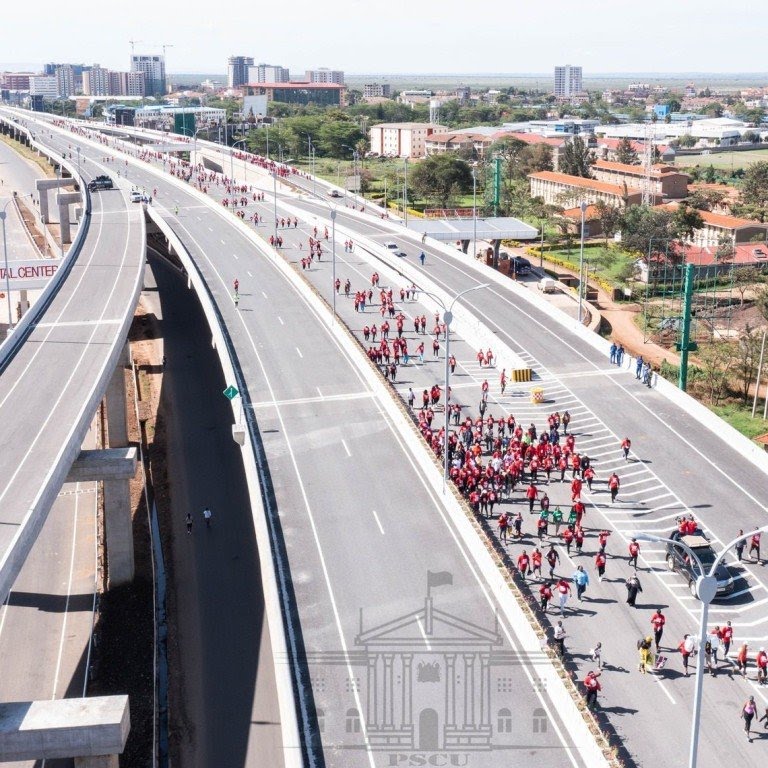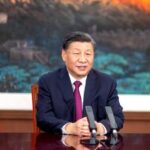The expressway opening in Kenya’s capital is part of a shift by China’s Belt and Road Initiative away from debt financing towards public-private partnerships
Chinese lenders have become more cautious in financing infrastructure projects on the continent, concerned about borrowers’ ability to repay loans
The Nairobi expressway was commissioned to the public on a trial basis on Saturday, and motorists will be allowed to use it for the next three weeks before its official launch.
So far 11,000 vehicles have registered to use the road. Kenyans have expressed their joy over the reduced traffic time they’ll spend when using the 27 kilometre highway.
As a Chinese-built and financed tollway opens in Kenyan capital Nairobi, its most remarkable feature may be that it is an example of Beijing’s attempt to retool the financing behind its Belt and Road Initiative in Africa.
The China Road and Bridge Corporation (CRBC) built the 27.1km (16.8 miles) Nairobi Expressway linking the country’s main airport and the capital. The US$668 million projectwas financed by the state-owned China Communications Construction Company, CRBC’s parent company.
A CRBC subsidiary, Moja Expressway, will operate the road for 27 years to recoup the investment through toll fees.
In all, the road marks a gradual shift in the belt and road strategy, from public debt finance to a new method of funding for infrastructure like roads and power plants in Africa: public-private partnerships (PPP).
Under the PPP model, Chinese private companies can lower the risks to repayment and help African governments reduce their loans and budget deficits, observers say.



